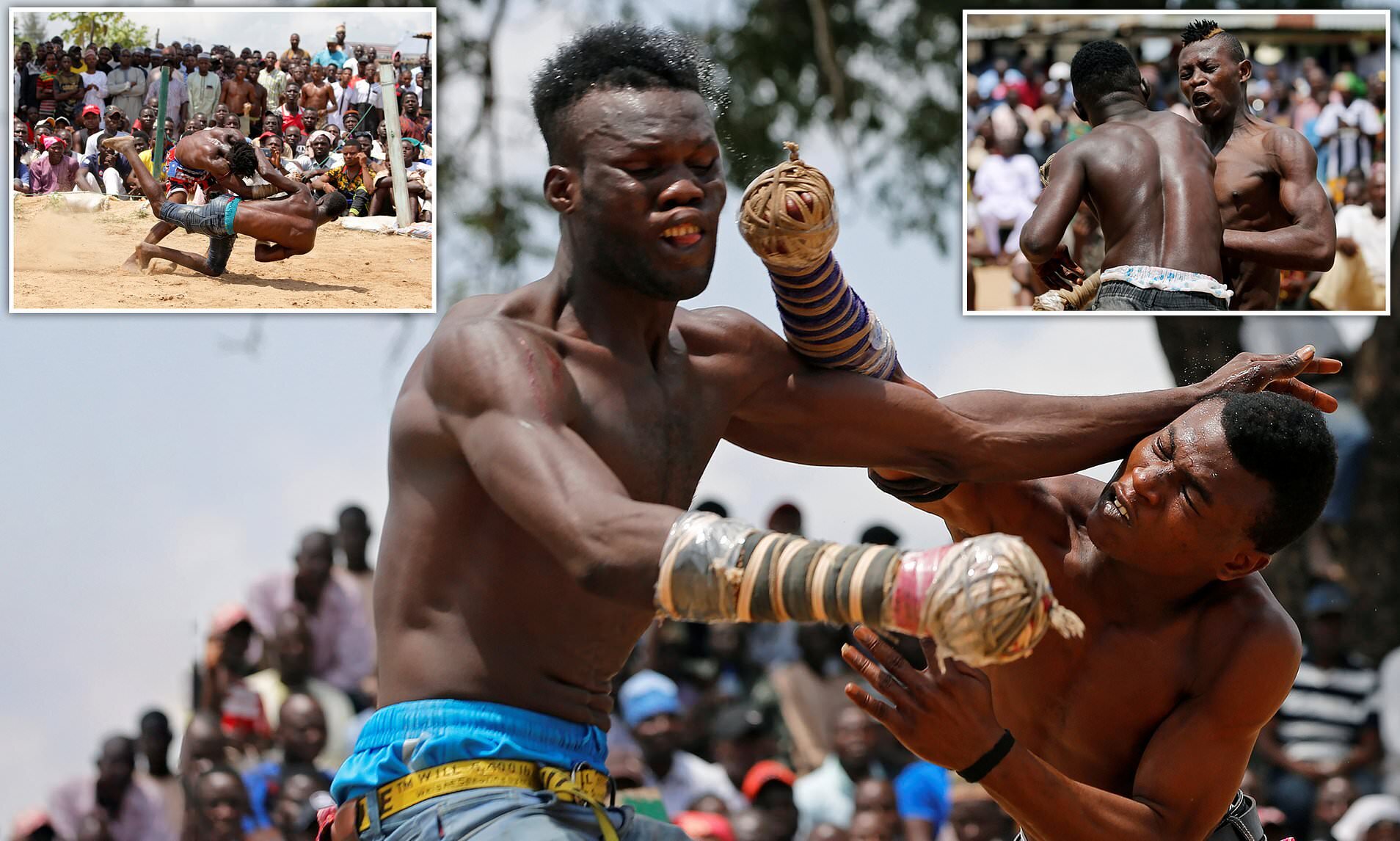
In recent years, African martial arts, including Dambe in West Africa and Nguni Stick Fighting in Southern Africa, have seen a surge in popularity among combat sports enthusiasts. These traditional fighting techniques, deeply rooted in African culture, are not only practiced for physical fitness but also serve as a means of preserving cultural heritage.
Dambe, originating from the Hausa people of Nigeria, is a form of boxing characterized by powerful strikes and distinctive hand wraps called “kara.” The sport, traditionally practiced by Hausa butchers, has evolved into a competitive spectacle with organized tournaments drawing large crowds.
Similarly, Nguni Stick Fighting, practiced among the Nguni people of Southern Africa, involves combatants wielding sticks to engage in controlled battles. Historically, stick fighting was used for settling disputes and honing combat skills, but today it has evolved into a structured sport with rules and regulations.
Enthusiasts of these African martial arts are drawn not only to the physical aspect of the sports but also to their cultural significance. These practices are often passed down through oral traditions and informal training sessions, strengthening bonds within communities and preserving ancient fighting techniques.
In addition to being hobbies for enthusiasts, these martial arts serve as platforms for cultural exchange and understanding. They provide opportunities for individuals from diverse backgrounds to connect and learn from each other, fostering mutual respect and appreciation for African traditions.
As interest in combat sports continues to grow worldwide, African martial arts offer a unique and enriching experience for practitioners. With their rich cultural heritage and dynamic fighting styles, Dambe and Nguni Stick Fighting are poised to further captivate the global martial arts community in the years to come.
